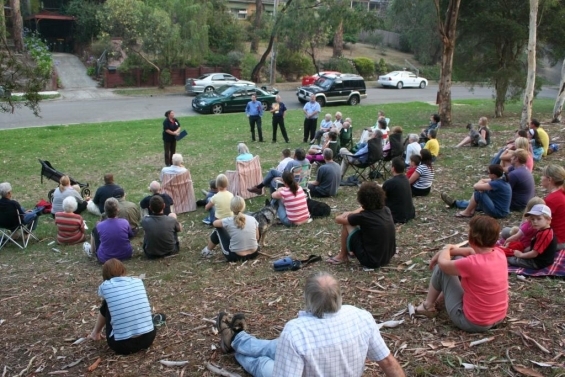Past Events

Power to the people
Date: Wednesday 9 July 2014 and Thursday 10 July 2014
Time: 12.30 pm AEST
Duration: 1 hour approx each session.
Presenters:
- Dr Blythe McLennan, RMIT
- Dr Michael Eburn, Australian National University
- Prof Barbara Norman, University of Canberra
- Mick Ayre, lead end user, Country Fire Service South Australia
Research projects covered:
- Sharing responsibility,
- Legal and policy
- Urban and regional planning systems
What's it about?
Communities expect agencies and government to act in a coordinated manner before, during and after fire events. This forum offers an understanding of how fire risk is incorporated into legislative frameworks and policy and planning processes.
Sharing responsibility:
This project sought to open up a process of discussion and examination of this widely supported principle of shared responsibility in Australian disaster management. This was achieved by focusing on its meaning, significance and challenges for the way governments and citizens work together to manage disaster risk. Findings support the notion that sharing responsibility in disaster management is not straightforward. Government, emergency service agencies, policy makers, communities and individuals all need to be encouraged to discuss and explore what sharing responsibility means for them. There is no one size fits all approach, nor is there a quick fix solution. Findings also indicate the need to develop governance arrangements and processes that are more inclusive of civil society.
Legal and policy:
This study has shown that Australian emergency management policy suffers from a lack of clear objectives or measures of success. This absence means that agencies, governments and citizens cannot identify whether or not policy objectives are being met and whether the emergency services are succeeding in their tasks. It also identified that litigation is not a significant threat to the emergency services. Although fire and emergency management could benefit from the fine tuning of laws, it is not obvious that there is a fundamental need for law reform or that policy changes could not be implemented by government as part of their administrative management of government departments. The most important changes are needed in the way events are reviewed, in order to move away from blame, rather than by the overwhelming nature of the event itself. Best practice models of post-event reviews were identified that allow agencies, governments and the community to learn from each event without sacrificing the good will of responders, or losing the very people who can learn from the experience.
Urban and regional planning systems:
This research project investigated the role of urban and regional planning in relation to fire risk and emergency management. The outcome of is a deeper understanding on the contribution of urban and regional planning to managing fire risk throughout Australia. The key dimensions identified are; the importance of better understanding the links between planning and bushfire risk; recognising the differences in risk perception influenced by history, landscape and experience; implementing effective planning and development controls; and providing appropriate education and training.


